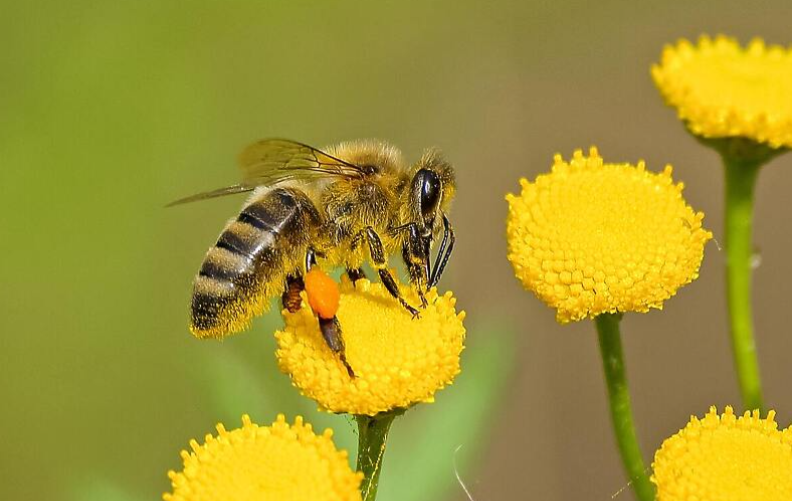New research has shown that the lifespan of honey bees has decreased by almost 50 percent over the past 50 years.
The European Red List for Bees study indicates that one in ten species of wild bees is facing extinction, with researchers urging people to consider how they would react if human life expectancy were halved. This would mean the average person living to be 41 instead of 82 years old. The future of humanity is tied to bees, as without them and other pollinators, it is impossible to cultivate most of the crops on which human food depends.
This research could help explain the high level of bee colony deaths worldwide in recent decades. Bee mortality was particularly pronounced in the United States during the winter of 2006/2007 when some commercial beekeepers lost 90 percent of their colonies. Unexplained high rates of bee colony deaths have been recorded in Canada, Australia, Belgium, France, the Netherlands, Greece, Italy, Portugal, Spain, Switzerland, Germany, Finland, and Poland.
During the cold winter of 2012/2013, 29 percent of bee colonies died in the United Kingdom. Researchers Anthony Nearman and Dennis van Engelsdorp from the University of Maryland used mathematical modeling to show that the shorter lifespan of bees could lead to mass colony extinction.

According to their data, the lifespan of bees in the United States has decreased from a median of 34 days in 1969 to just 18 days. The studied worker bees were removed from hives and placed in “cages,” not wild bees, which could have influenced the results. However, if this is not the case, something concerning is happening.
The authors believe that modern bees may be suffering from a higher prevalence of diseases such as deformed wings, which have become more common since its discovery 40 years ago. They may be weakened by new generations of pesticides that did not exist 50 years ago. The pollen with which bees feed their larvae is often contaminated with pesticides, which could worsen their situation as they are exposed to small doses of highly toxic pesticides called neonicotinoids, reducing their resistance to diseases.
It is also possible that the genes of bees have changed. The lifespan of bees is linked to their genes. Artificial or natural selection may favor bees with shorter lifespans. Scientists note that this is happening with other species as well. For example, cod now mature earlier and smaller due to overfishing, so fish rarely live long enough to grow. It is also possible that stressors in the modern world, such as pesticides and diseases, are causing bees to live shorter lives.
Their evolution could favor a “live fast, die young” lifestyle. Bees are already facing many pressures in their efforts to survive. Another study conducted at the University of Bristol, published this month, showed that fertilizers change the electrical field of plants, altering the way bees “perceive” flowers.
This distracts them from visiting flowers, leading to the disappearance of bee habitats. Since the 1930s, 97 percent of wildflower meadows have disappeared in the UK as a result of intensified agriculture. However, the new research raises more questions than it answers. The data is based on groups of worker bees kept in cages, a method often used to study the effects of stressors such as pesticides.
In such experiments, researchers usually place control groups simultaneously and in identical conditions in different studies conducted across the United States since 1969. The authors acknowledge that this is a weakness in their report. They cannot guarantee that laboratory conditions have remained the same since 1969. Older studies may have used wooden cages, while modern ones use plastic.
Cage sizes may be smaller or larger, and airflow in modern incubators may be faster or slower. Such details are rarely noticed. Everything that has changed in the past 50 years could explain the decrease in bee longevity. It will not be easy for scientists to unravel the findings of the study, but if historical data on the longevity of wild bees in previous decades were found, they could be compared with today’s measurements. This would help scientists rule out the possibility that laboratory conditions influenced the research results.
The shortened lifespan of bees means reduced pollination. Bees and other pollinating insects are essential for a good harvest in 75 percent of crops grown worldwide. They also pollinate around 80 percent of all wild plants.
All bee species face challenges like honey bees, but it is not known whether their lifespan has also changed. If bees do indeed live shorter lives in the wild, it is necessary to find out why, The Conversation reported.

